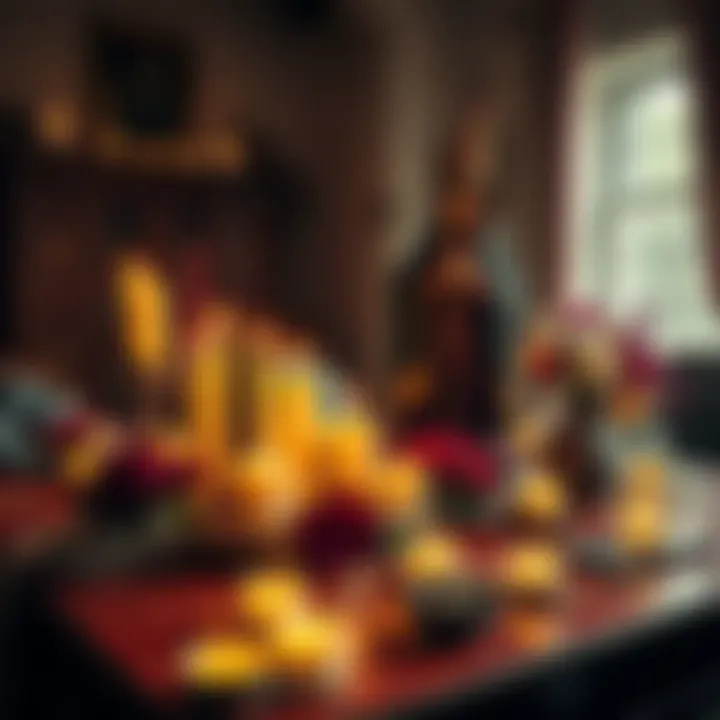Do Deities Enhance Spell Effectiveness? | Diverse Opinions Emerge
Edited By
Sophia Hart

A lively discussion has erupted across various forums on whether working with deities enhances the effectiveness of spells. Practitioners from different backgrounds chimed in with a mix of experiences, beliefs, and opinions, highlighting a vibrant community seeking clarity.
A Latin American Perspective
A newcomer from Latin America prompted this discussion by questioning the necessity of deities like Santa Muerte or the Souls of Purgatory in spellwork. This inquiry strikes a chord with many who believe in the power of divine entities. However, opinions widely diverge.
Insights from the Community
Several respondents expressed that working with deities is not a prerequisite for successful spell casting. "Spells don’t need a deity to help them work," shared one practitioner. Another insisted it's about individual preference: "Working with something won’t guarantee a spell working either."
Varied Approaches
Non-Deity Magic: Many threads revealed a significant number of practitioners who prefer secular approaches. One shared, "Just find what helps you visualize your own magic the best!"
Deity Support: Others echoed the sentiments that while not necessary, deities can enhance results. As one user articulated, "They can protect you when you are not even aware that you are in danger."
Energy and Intent: The role of energy, intent, and practice emerged as key themes. One user noted, "Spells aren't 100% guaranteed to work. It's a lot more complicated energetically"
The Essence of Belief
Belief in the effectiveness of a spell plays a crucial role. "It is optional some gods or spirits do you the favor of doing it for you," stated a participant. This suggests that while deities might offer support, personal belief and confidence significantly influence success.
"A lot of it is 'fake it until you make it,' just pump yourself up," advised one contributor, highlighting the psychological component in spell work.
Key Takeaways
△ Practitioners are divided on the necessity of deities for spell success.
▽ Secular practices dominate for many, emphasizing personal growth and accountability.
※ "Belief in your spells can significantly impact their effectiveness."
In this ongoing conversation, the community emphasizes personal agency and varied practices. At the intersection of belief systems and personal experience, many find their paths in the rich realm of spellwork.
Shifting Tides in Spellcasting Views
As the conversations around deity involvement in spell work continue to evolve, it’s likely we will see more practitioners exploring diverse methodologies, ranging from deeply traditional rituals to innovative secular approaches. Experts estimate that the discussion may shift further towards secular magic, with about 60% of practitioners endorsing practices independent of deities within the next few years. This trend has arisen from a growing desire for personalized, accountable practices that empower individuals in their own spiritual journeys. The emphasis on belief and intent suggests that the role of deities might diminish, but their influence will still linger, reshaping how spells are cast.
A Historical Reflection on Changing Beliefs
Reflecting on the adaptability of belief systems, the rise of secular humanism in the 20th century serves as an intriguing parallel to the current discourse in spellwork. Just as individuals turned to moral frameworks outside religious institutions, today’s practitioners are embracing personal inscriptions into magic that prioritize individual experience over divine validation. Much like the way Hanukkah was reinterpreted amid the landscape of modernity, today's spellcasters appear to be carving a niche that values personal agency above adherence to traditional deity-centric practices, marking a significant shift in the cultural fabric surrounding spiritual beliefs.
